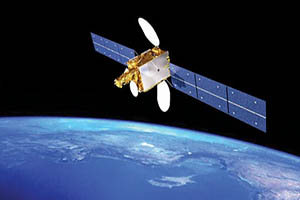
Electro-Optical One, made – In – Pakistan Satellite
Pakistan's achievement in space technology with the development of its first indigenous satellite, Electro-Optical One, marks a milestone in the country's space exploration efforts. Electro-Optical One is set to be launched on January 17, this breakthrough is poised to have far-reaching implications across multiple sectors, showcasing Pakistan's growing capabilities in Advanced Earth Space and Planetary Sciences (AESPS). As Pakistan continues to invest in space technology, the Electro-Optical One satellite will not only enhance scientific research capabilities but also have a broad and positive impact on several key sectors such as disaster response, agriculture, urban planning, and natural resource monitoring.
|
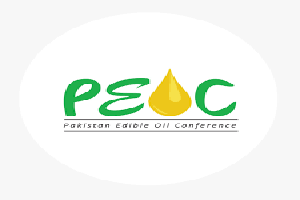
7th Pakistan Edible Oil Conference – 2025
Pakistan Edible Oil Conference (PEOC) – 2025 underscores the persistent issues surrounding Pakistan’s edible oil. Pakistan is highly dependent on foreign sources, particularly palm oil, which constitutes a major portion of these imports. Edible oil imports are the second-largest category after petroleum products, prominence the financial burden on the country. 3 million tons of edible oil imported annually, is a component of the country's import bill. Local production of edible oil accounts for only 19% of the demand, while the rest is met through imports. Shifting towards local production of oilseeds like sunflower and canola in is a positive step and gradually reduce its dependence on imports particularly palm oil.
|
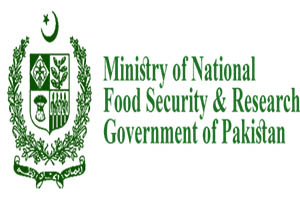
National Food Safety, Animal and Plant Health Regulatory Authority
The establishment of the National Food Safety, Animal and Plant Health Regulatory Authority to address deficiencies in agricultural export standards. In Past Pakistan has faced several export restrictions due to quality concerns, which took substantial time and effort to resolve. The urgency and firmness of addressing quality related issues to safeguard the country’s agricultural trade. Weak institutional capacity and non-alignment with international SPS standards are major barriers to accessing global markets. The new regulatory framework aims to modernize quarantine controls, improve back-end supply chains, and ensure compliance with global SPS standards.
|
-2025-.jpg)
Strategic Trade Policy Framework (STPF) 2025-30
Pakistan's Strategic Trade Policy Framework (STPF) for the period 2025-30, is building on the existing framework that is set to expire in June 2025. Over 50% of the approved proposals from the 2020-25 framework remain unimplemented and the lack of implementation in the past, which range from bureaucratic hurdles, resource constraints, or insufficient coordination among stakeholders. The new STPF focused on clear, measurable targets for export growth, particularly in priority sectors and more effective approach is needed to ensure the success of the new policy.
|
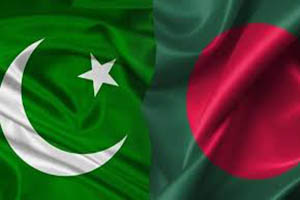
Pakistan-Bangladesh Joint Business Council (JBC)
The Pakistan-Bangladesh Joint Business Council (JBC) has been established by signing MoU between Federation of Pakistan Chambers of Commerce and Industry (FPCCI) and the Federation of Bangladesh Chambers of Commerce and Industries (FBCCI). Pakistani trade delegation returned to Bangladesh in 12 years to foster economic ties. Industries participated at the forum included electronics, cars, industrial machinery, carpets, textiles, ceramics, sanitary products, processed foods, and more. Pakistan-Bangladesh Joint Business Council (JBC) along with SAARC and OIC to boost bilateral trade and collaboration opportunities in energy, education, technology, and human resource development with shared challenges in regional and global markets.
|

Azerbaijan Trade Center – Lahore
Azerbaijan Trade Center in Lahore to be established by Azerbaijan holds potential for strengthening Business-to-Business (B2B) interactions and people-to-people ties, which are decisive for long-term economic and cultural integration. Pakistan-Azerbaijan Chamber of Commerce to fetch the business of both nations closer and open new paths for mutual cooperation and by focusing on areas such as energy, agriculture, technology, and culture, both countries benefit from a robust and dynamic relationship that contributes to their economic growth and mutual prosperity.
|
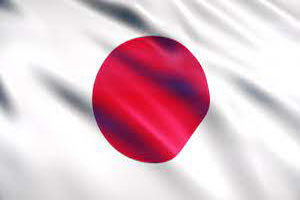
Japan Urges Pakistan to Lift Import Restrictions
To strengthen bilateral economic ties for growth and investment in several important areas of cooperation with several challenges highlighted in the 8th Japan-Pakistan High-Level Economic Dialogue. Japan's concerns, particularly regarding the safety of personnel working on Official Development Assistance (ODA) projects, import restrictions and tariff adjustments or relaxations on automotive imports to attract Japanese car manufacturers, trade promotion, the need for smoother business operations, reflect the broader goal of enhancing trade and investment between the two countries. By addressing Japan’s, Pakistan fosters stronger economic cooperation but also create a more conducive environment for Japanese investments and technology transfer.
|

Freight Corridor Project from Karachi Port to Pipri
The project of Freight Corridor Project from Karachi Port to Pipri is likely to condense freight vehicle traffic in Karachi by leveraging upgraded railway infrastructure, enhancing the country's freight services in a cost-effective and efficient manner. Chairman of Ports and Group CEO of DP World, visited Pakistan through the Special Investment Facilitation Council (SIFC) platform to finalise commercial aspects of the Dedicated Freight Corridor project from Karachi Port to Pipri. The Freight Corridor Project from Karachi Port to Pipri and position Pakistan a key regional hub for transshipment and transit trade with strong public-private collaboration, multi-million-dollar investments, and sustainable practices, the project shows a fundamental role in Pakistan’s economic transformation and regional trade expansion.
|
|

© 2025 Alpine Marine Services Private Limited
all rights reserved
|
|
|